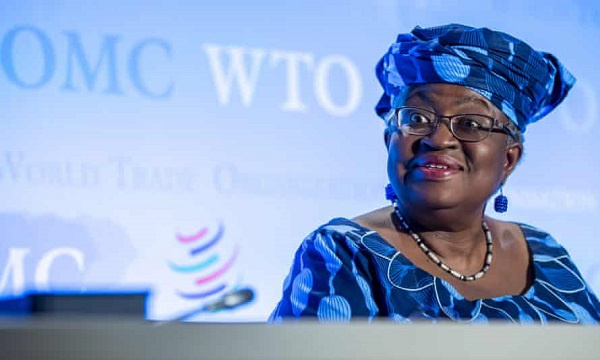The World Trade Organisation (WTO) Director-General, Dr. Ngozi Okonjo-Iweala, has thrown her weight behind calls for a just energy transition framework for African countries, saying balance must be sought between the desire for a cleaner, more sustainable environment and the continent’s need for development.
She is of the opinion that the continent – which accounts for less than four percent of global carbon emissions – cannot be expected to phase-out fossil fuels at the same pace as regions which have historically contributed more to global pollution.
“Since we are a small part of the emissions, we cannot be expected to phase-out of fossil fuels – which are highly carbonated – at the same pace as others,” Dr. Okonjo-Iweala stated while speaking on the theme ‘Making Globalisation Work For Africa’ during a session hosted by the Institute of Economic Affairs (IEA) in Accra.
Critics have often trumpeted what they describe as the hypocrisy of more developed nations as they push toward net-zero – the complete elimination of greenhouse gas (GHG), having used fossil fuels to develop their economies. The calls gained momentum when these nations resorted to fossil-fuels in the wake of an energy squeeze occasioned by the Russia-Ukraine war.
Others have questioned the ‘cleanness’ of alternative sources of energy, as the lithium needed to power batteries for the rapidly growing Electric Vehicle (EV) industry continues to fuel environmental degradation and conflict in nations such as the Democratic Republic of Congo (DRC).
The economist stated that the issue remains a matter of urgency, as despite the continent’s limited contribution to global emissions it continues to suffer the impact of climate change disproportionately – saying that most casualties from the adverse effects of climate change have been in developing regions.
“We cannot pretend that climate change does not exist, because it will beat us if we do. We do not know which country is next,” she said.
This comes as The State of the Climate in Africa report, published by the World Meteorological Organisation (WMO) in 2021, showed that Africa warmed at an average rate of around +0.3 °C per decade between 1991 and 2021 – faster than the warming from 1961-1990, at +0.2°C per decade.
Also, over the last 50 years drought-related hazards have resulted in the loss of more than half a million lives and caused economic damage worth over US$70billion on the continent. During this time, Africa has experienced over 1,000 flood-related disasters resulting in more than 20,000 fatalities, the report added.
Locally, there are concerns about the full extent of degradation that is caused by small-scale illegal mining known as ‘galamsey’.
To ensure a sustainable transition, Dr. Okonjo-Iweala called for a transition period of 20 years or more for African countries – which will extend beyond the strict 2050 deadline for net zero.
She suggested that African countries should be allowed to use gas for a reasonable period of time, but not coal; and should invest in renewables simultaneously, while calling for nations that have developed through the use of fossil fuels to fund Africa’s energy transition.
The role of trade
Dr. Okonjo-Iweala also pointed out that while trade is usually seen as contributing to the problem of climate change due to the logistics – carbon emissions by ships and airplanes – trade can play a crucial role in addressing climate change.
“Trade helps with adaptation and mitigation. The technologies you need to fight climate change cannot circulate without trade,” she said.
She also revealed that 40 percent of the significant fall in cost of solar panels comes from economies of scale provided by trade. She emphasised that trade is part of the solution, and the world cannot survive the impact of climate change without it.
The IEA session formed part of her engagements during a two-day visit to Ghana.
Source: thebftonline.com

